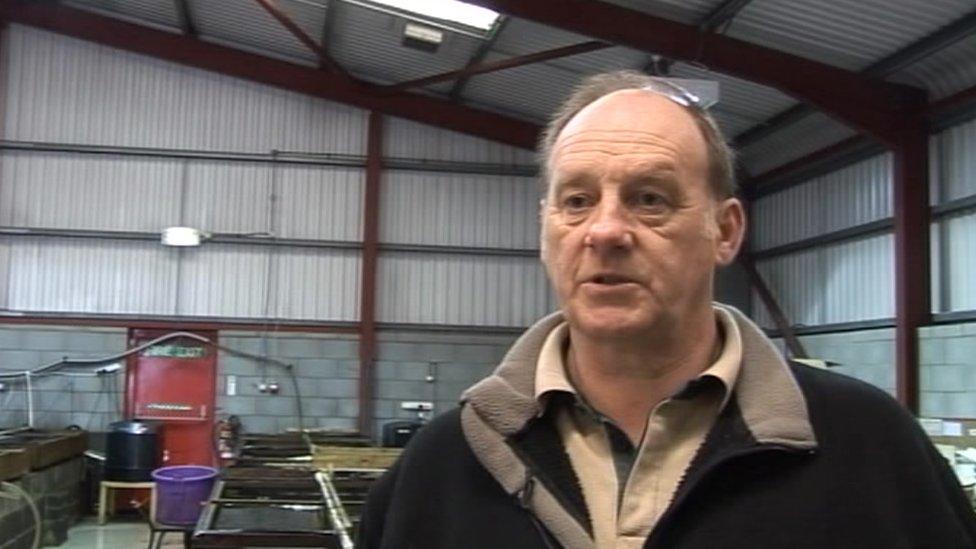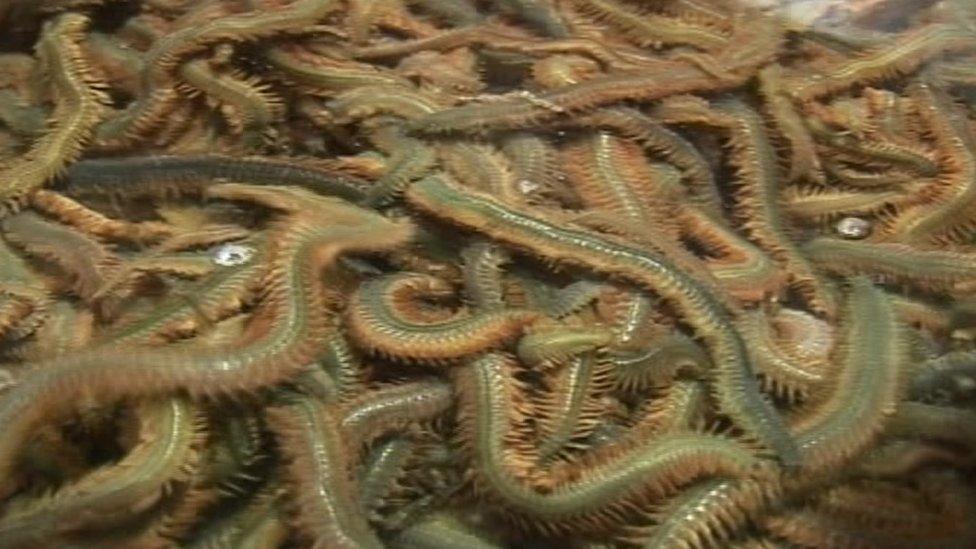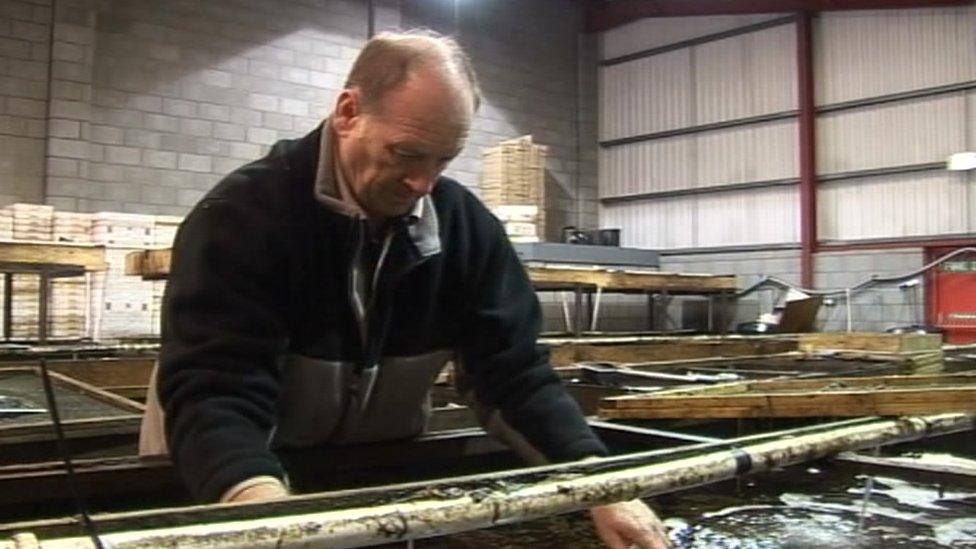Tony Smith's saving the oceans plan was one big fraud
- Published

Smith was responsible for the biggest fraud on the Welsh Government
Tony Smith was the businessmen with a golden idea - a new type of fish feed that he said could help save the oceans, while also making Wales a global leader in the aquaculture industry.
So powerful was his pitch that he had no shortage of backers, and was given £4.7m in grants from the Welsh Government and EU.
He wanted to create huge ragworm farms to offer sustainable feed to the seafood industry - and experts argued the idea was destined to succeed.
But despite that, Smith's companies folded, prompting the start of inquiries into what would eventually be revealed as the largest ever sum defrauded from the Welsh Government.
"It didn't sound too good to be true. It sounded completely logical," said Kit Smith, who with his business partner invested £250,000 into Smith's idea.
"I come from an aquaculture and seafood background, everyday I was faced with stories about how catastrophic the industrial fishing sector was, and still is.
"The race was on to find a solution and an alternative."
The attraction behind Smith's idea lay with the way in which fish were farmed for the seafood industry.
Aquaculture, or farming fish specifically for food, is seen as a way of limiting the impact of traditional fishing on the oceans.

Smith claimed huge ragworm farms could offer sustainable feed to the seafood industry
But the process uses '"fishmeal" to feed the stocks, which is itself made up of smaller fish caught from the ocean.
"Because at the moment fishing fleets are going out there and catching all these fish to create fish feed for aquaculture, the industry isn't actually helping the oceans, instead it is contributing to their downfall," said Kit Smith's business partner, Malcolm Stewart.
'A great idea'
The pair were attracted to Tony Smith's idea to use the ragworms, which he was breeding on land in huge ponds, as an alternative to traditional fishmeal.
"We went into it with our eyes open wide, thinking we were going to make the world a better place and make a load of money," said Mr Stewart.
But about 10 years after they first met Smith, both men say they too were "duped" into investing in Smith's fraudulent operation, which collapsed shortly after they had invested.
"Tony was very charismatic, he came across as very likeable, very genuine, but he was an extremely effective liar," said Mr Stewart.
"The whole thing was tragic, it's still a such a great idea and he could have made so much money instead of just ripping everybody off."
After an investigation spanning years, Smith admitted three counts of fraudulent trading involving his companies Dragon Research, Dragon Feeds and Dragon Baits - which were based at sites in Port Talbot and Laugharne, Carmarthenshire.
He was jailed for three years and nine months.
Janet Potter, deputy head of the Crown Prosecution Service's specialist fraud division, said between 2005 and 2011, Smith consistently lied on applications for grants to pump his businesses full of public money he was not entitled to.
"He over-exaggerated expenditure made by his companies," she said.
"Producing false invoices which showed expenditure had been made when in fact it hadn't, or by using various ways of money being shown to leave the company, when actually it then made its way back in."

The result, she said, was that Smith was approved for and given large sums of funding that he would never legally have qualified for.
"The grant applications that were made contained information that wasn't true, and deliberately wasn't true. What perhaps is unusual in this case is the persistent applications to the same authority."
Ms Potter said the result of Smith's fraud allowed him to invest very little of his own money in his worm farming ventures, instead allowing taxpayers' money to shoulder the associated risks while he continued to take a salary.
"The evidence in the case seems to suggest that the money was going back into the companies owned by Mr Smith and others, and obviously they would be receiving an income form those companies.
"That seems to be where the money was going, it was circulating around the companies.
'He let me down'
"I think people very often think that fraud, particularly against a government is a victimless crime, but the fact of the matter is that this is £4.7m worth of tax payers money and European Union funding that didn't go to legitimate businesses in Wales, it could have provided employment and opportunities for the Welsh community.
"It's a considerable amount of money which has now been taken out of those resources."
It is a sentiment visible both in terms of jobs and failed promises. At the peak of his success, while expanding his operation to Laugharne, Smith had pledged to create 120 jobs in the aquaculture industry in Wales, but only seven ever materialised.
"Not only did he let me down but he let the Welsh people down," said Mr Stewart, who still intends to pursue the £250,000 he said he lost.
Although he, like other investors, argue that perhaps Smith's greatest crime was damaging an idea potentially capable of really helping the natural world.
"The biggest tragedy of this whole thing is that he didn't use the money for what it was for. To this day there's a huge gap in the market to create fish feed without fishmeal in it," he added.
"There's a huge opportunity and also a huge need for a fishmeal-free fish feed, and he was on the cusp of having it."
- Published28 March 2019
